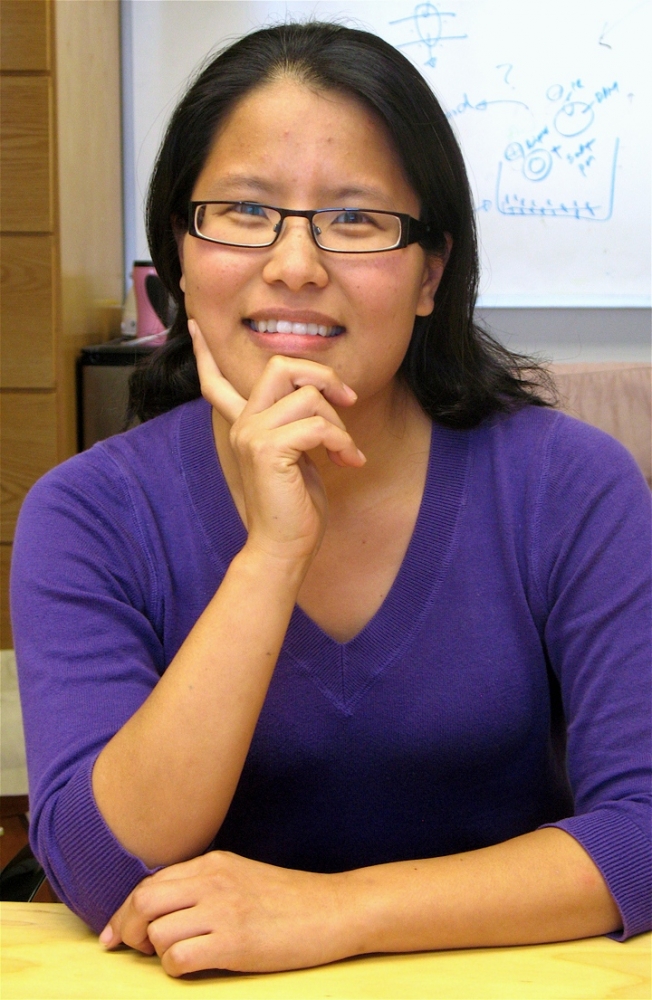
Songi Han Receives Bessel Prize
Songi Han, professor of chemistry and biochemistry and chemical engineering at UC Santa Barbara, has received the Friedrich Wilhelm Bessel Prize from the Humboldt Foundation. Han is internationally known for her pioneering work in developing a novel technique for exploring surface water dynamics at biomolecular surfaces in solution.
“I was very excited,” Han said of learning that she had been chosen for the Bessel Prize. “It’s an honor to be selected.”
The Alexander von Humboldt Foundation grants up to 20 Friedrich Wilhelm Bessel Research Awards annually to scientists and scholars who are not only internationally renowned in their fields but also expected to continue producing cutting-edge achievements that will have a seminal influence on their disciplines beyond their immediate fields of work. Each winner receives a stipend of 45,000 Euros (approximately $50,000).
“The Friedrich Wilhelm Bessel Prize is a prestigious and meaningful affirmation of Professor Songi Han’s innovative research on nuclear magnetic resonance and electron paramagnetic resonance spectroscopy,” said Chancellor Henry T. Yang. “This prize affords a proud recognition and exciting opportunity to advance her research by working in collaboration with prominent colleagues in Germany. Professor Han’s contributions are a mark of pride for our campus, and I look forward to cheering for her as the impact of her research continues to grow.”
Named after the late Prussian naturalist and explorer, the Alexander von Humboldt Foundation promotes academic cooperation and each year enables more than 1,800 investigators from all over the world to spend time conducting research in Germany. Han is working with professor Martina Havenith-Newen of the Ruhr-Universität Bochum’s Cluster of Excellence RESOLV on solvation science (the science of water). Together the two scientists collaborate with an international team to unravel the role of solvation in protein dynamics, protein-membrane interaction and catalysis by synergistically combining multiple techniques and expertise.
“It’s an exciting topic and a controversial one as well because water as it interacts with biological surfaces is so difficult to measure and there are not enough experimental methods,” Han said. “We are studying how water interacts with biomolecules, including proteins, DNA and lipid membrane surface, using a variety of spectroscopy methods.”
Han received her doctorate from Aachen University of Technology in Germany in 2001. She pursued postdoctoral studies at the Max-Planck Institute for Polymer Research in Mainz, Germany, and at UC Berkeley. She joined the faculty in 2004.
In addition to the Humboldt Prize, she is a recipient of the 2011 National Institutes of Health's New Innovator Award; the 2010 Technische Universität München’s Institute for Advanced Study Visiting Fellowship; the 2010 Camille Dreyfus Teacher-Scholar Award; the 2008 Packard Fellowship for Science and Engineering; the 2007 National Science Foundation’s Faculty Early Career Development Award; and the 2004 Camille and Henry Dreyfus Foundation’s New Faculty Award.



